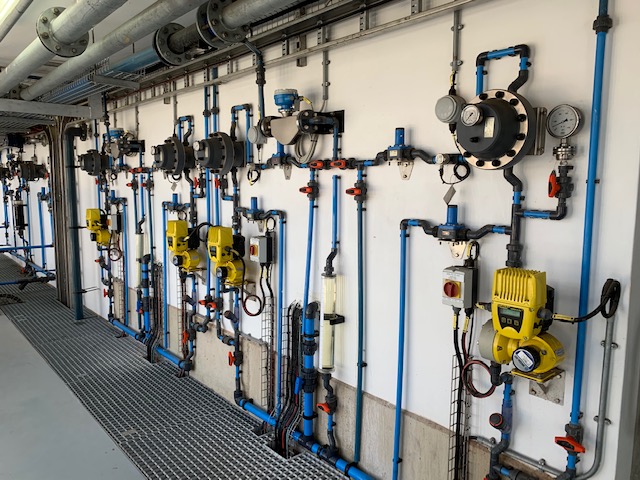In a world driven by precision and efficiency, the importance of metering pumps cannot be overstated. These unassuming devices play a pivotal role in various industries, bridging the crucial gap between accuracy and volume. Whether it is in chemical manufacturing, water treatment, pharmaceuticals, or oil and gas, metering pumps are the unsung heroes that ensure precise quantities of fluids are delivered consistently. They are designed to meticulously control the flow rate of liquids, ensuring that the right amount is dispensed with each stroke. Unlike traditional pumps that may suffer from inconsistent flow rates, metering pumps offer unparalleled precision, making them indispensable in applications where accuracy is non-negotiable.

The versatility of metering pumps is truly remarkable, as they find their way into a multitude of industries.
Chemical Manufacturing – In chemical production, the composition of a product often hinges on the precise ratio of ingredients. Metering pumps excel at injecting chemicals into the manufacturing process with pinpoint accuracy, leading to the creation of high-quality products while minimizing waste.
Water Treatment – The treatment of water for drinking, industrial use, or wastewater disposal is an arena where metering pumps play a pivotal role. The bombas dosadoras are instrumental in adding specific chemicals, such as chlorine or coagulants, to the water in controlled amounts, ensuring that it meets safety and quality standards.
Pharmaceuticals – Medication dosages need to be exact to ensure their effectiveness and safety for patients. Metering pumps are employed in pharmaceutical manufacturing to guarantee that the right amount of active ingredients is present in each tablet or vial.
Oil and Gas – In the extraction and processing of oil and gas, metering pumps handle a range of tasks, from injecting chemicals into wells for enhanced oil recovery to controlling the flow of lubricants and coolants in machinery.
Agriculture – The agriculture sector relies on metering pumps for the precise application of fertilizers, pesticides, and herbicides. This precision ensures optimal crop growth while minimizing the environmental impact of excess chemicals.
The Mechanics of Precision
Metering pumps achieve their exceptional accuracy through various mechanisms, the most common being positive displacement. These pumps operate by trapping a fixed volume of fluid and then discharging it with each stroke or revolution. This consistent and repeatable action ensures that the desired flow rate is maintained with incredible accuracy.
Diaphragm pumps, piston pumps, and peristaltic pumps are some of the common types of metering pumps used across different industries. Each type has its own advantages and is chosen based on the specific requirements of the application.
Challenges and Innovations
While metering pumps have come a long way in ensuring accuracy and reliability, they are not without challenges. Abrasive or corrosive fluids can cause wear and tear, leading to maintenance issues. Additionally, variations in temperature and pressure can affect their performance. To address these challenges, manufacturers are continually innovating. The development of materials that resist corrosion and wear, the integration of smart sensors for real-time monitoring, and the use of advanced control systems are some of the innovations that have made metering pumps more robust and efficient.


